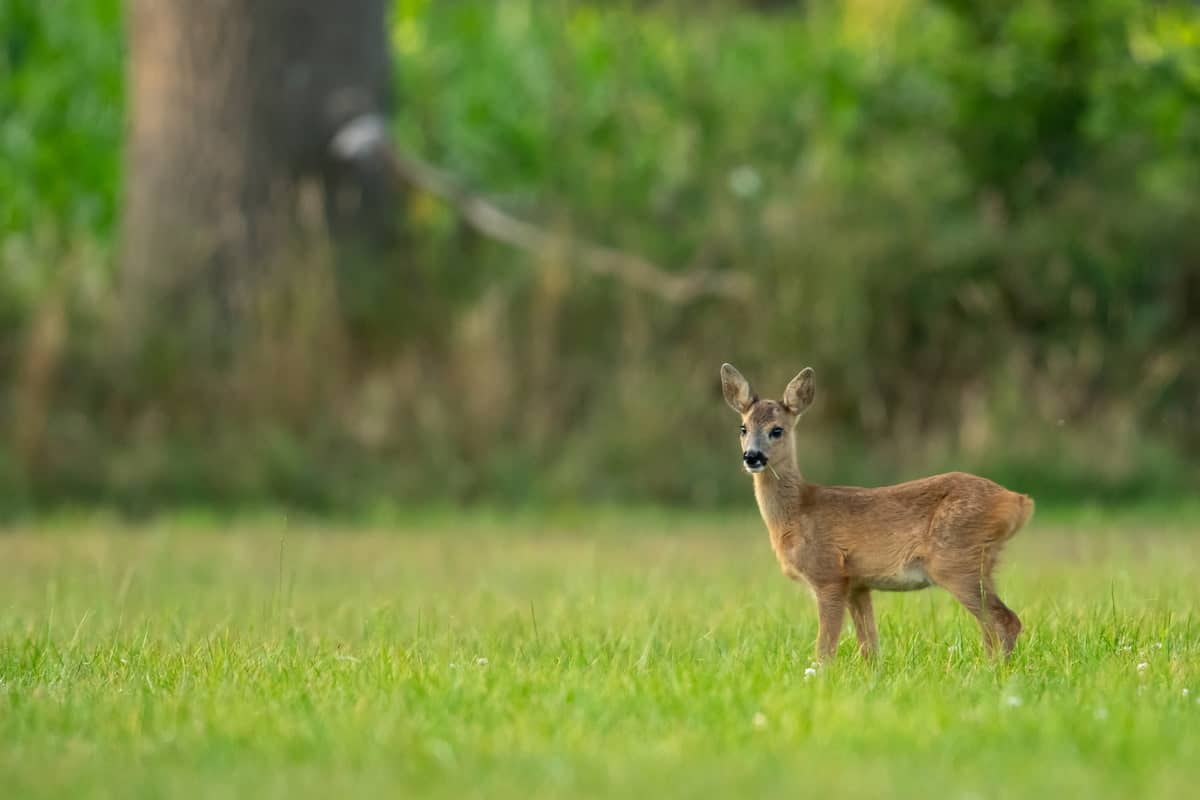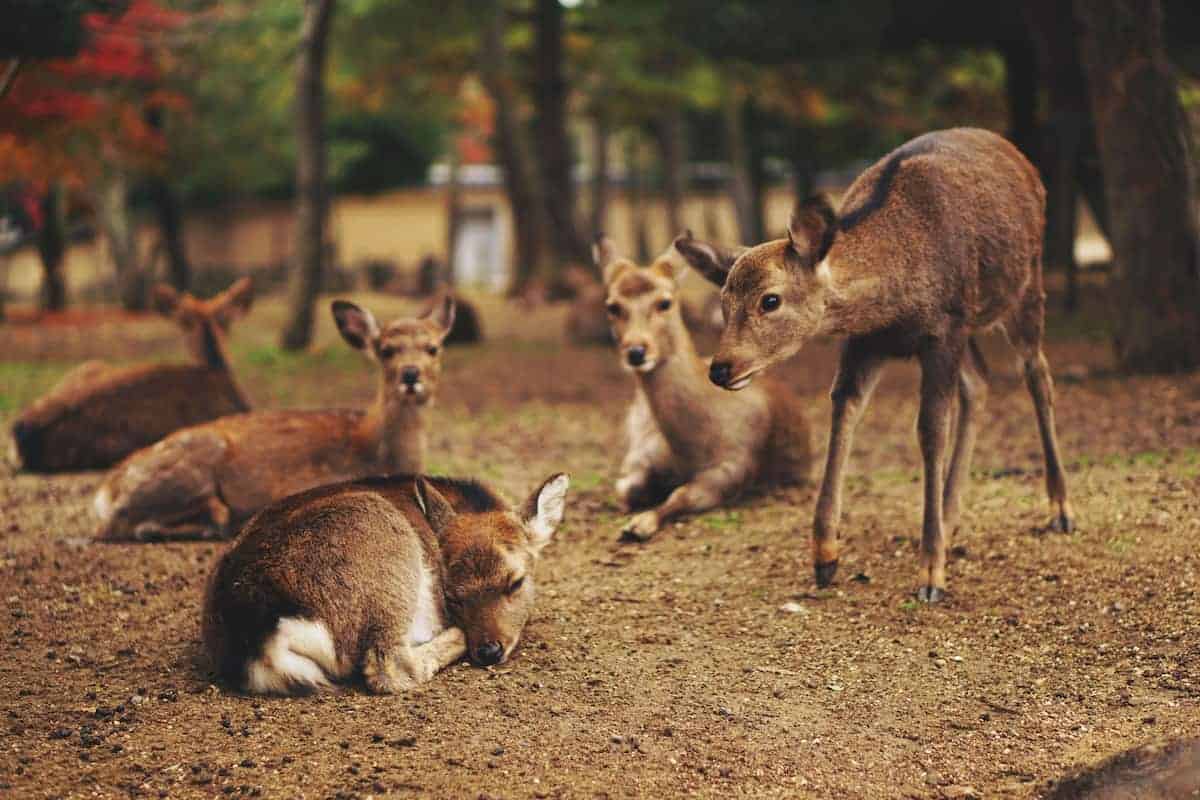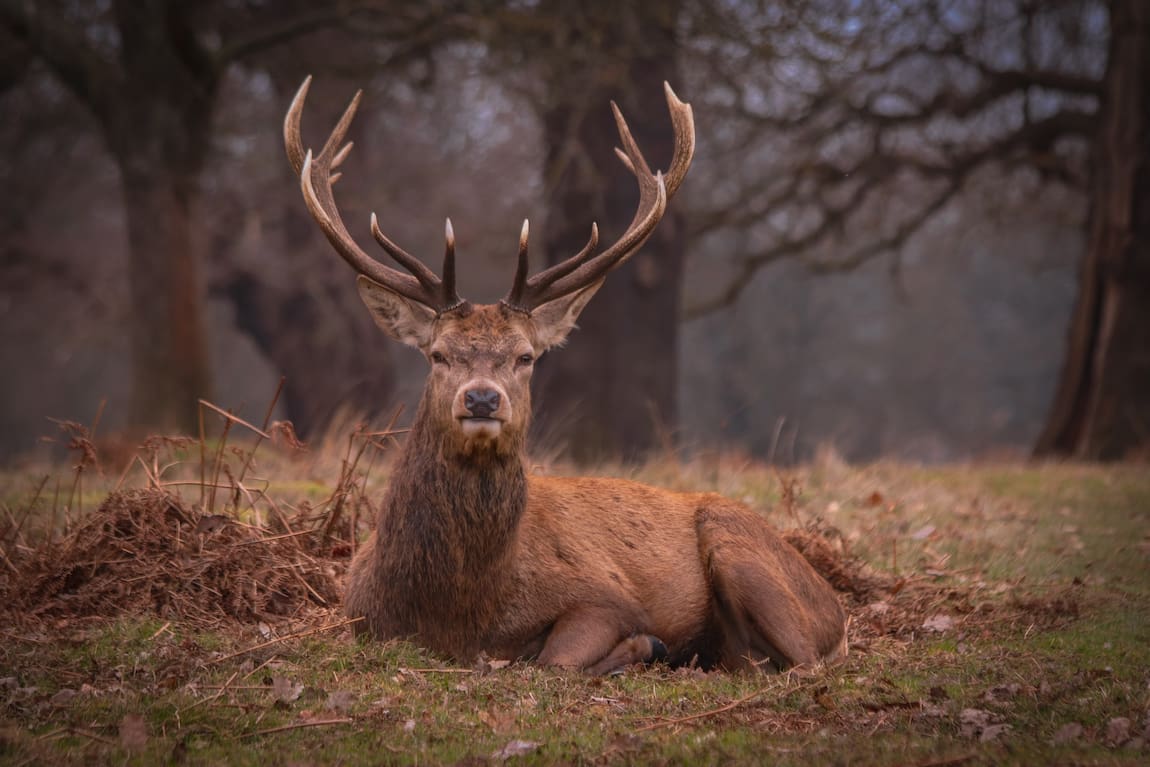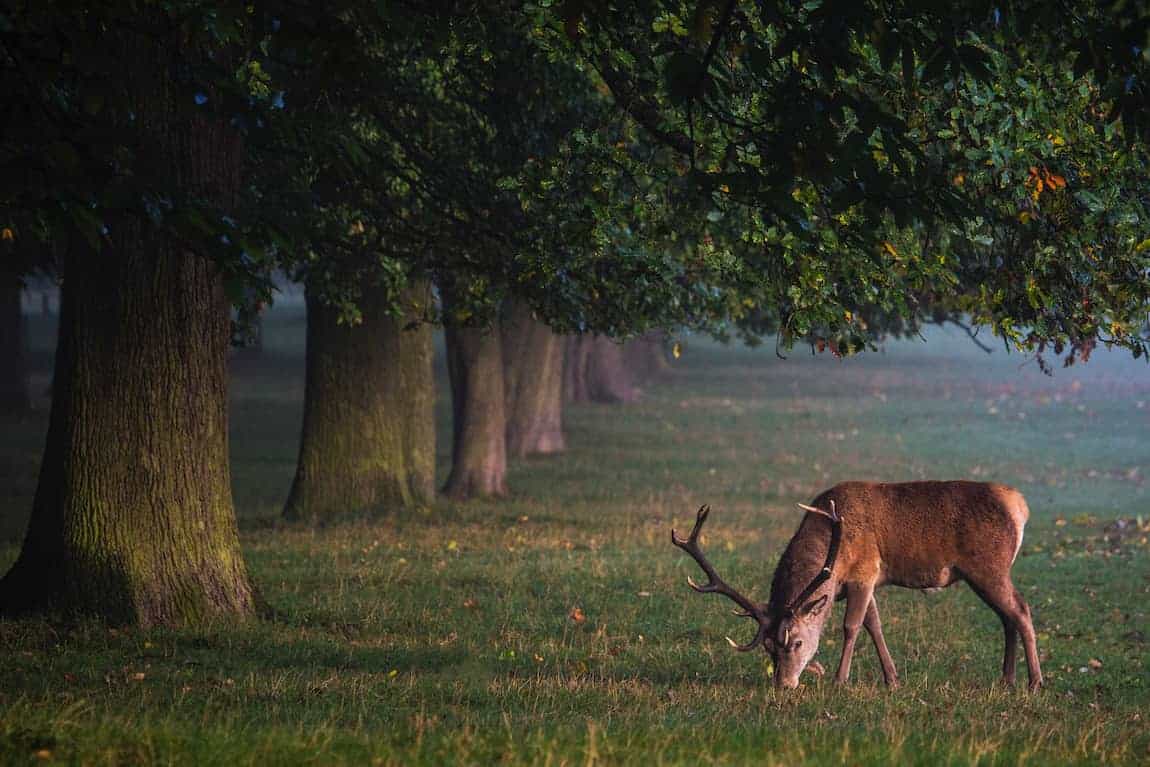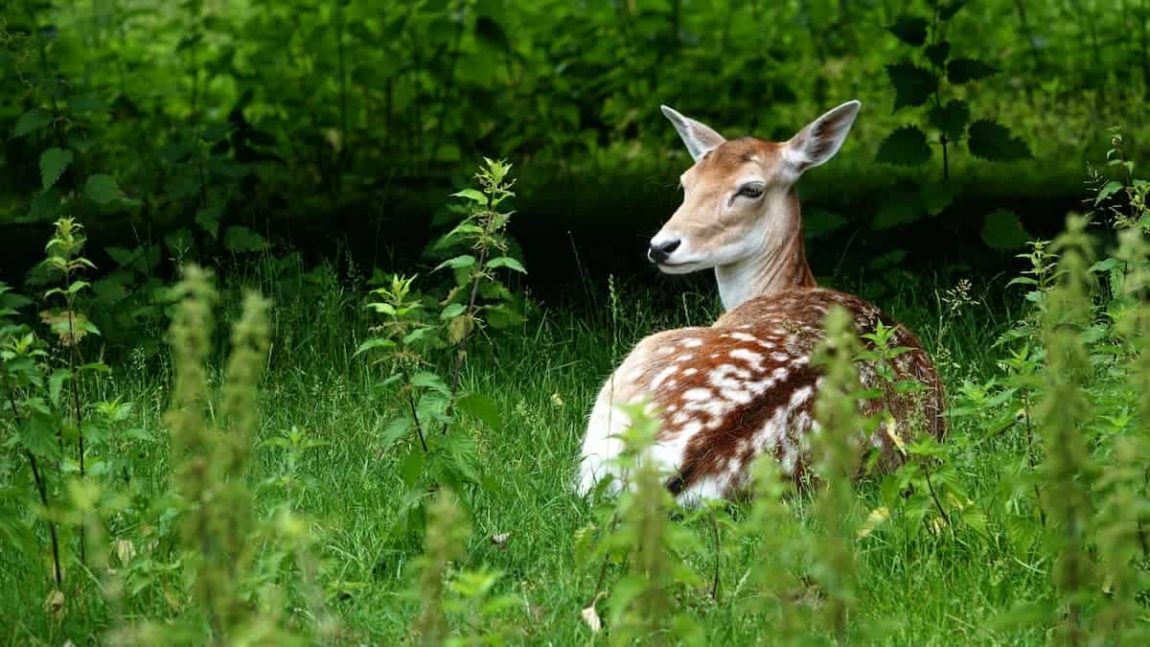If you’ve ever been surprised by a deer sleeping in your yard, you’re not alone! Although they may seem like pests at times — especially for gardeners — there are several reasons why deer might choose to sleep in your backyard over others. In this article, we will explore what attracts deer to yards and what homeowners can do if they find deer in their yard. We will also discuss how to prevent deer from coming back if that is your goal.
There’s an Easy Food Source Nearby
Deer tend to sleep close to where they feed because they don’t want to expend a lot of energy traveling long distances for food. Although they may cover great distances over time, they tend to prefer keeping things local in that regard.
If you live in an area with a lot of deer, chances are there’s a food source nearby that’s attracting them to your yard. This could be anything from an abundance of acorns to a neighbor who regularly feeds the deer, or a source of fresh running water, which will attract many other wild animals as well.
Your Backyard Provides Shelter
In addition to being close to a food source, deer also feel safest when they sleep in areas that offer some form of shelter or protection. This could be anything from dense foliage to a shed or garage.
If your yard has any type of structure that offers shelter, it’s likely that deer will gravitate toward it when looking for a place to sleep — a fence with bushes, low-hanging trees, or tall grass. Thick vegetation may provide them with the cover they need to feel safe and secure — it just happens to be in your backyard.
You Have Other Animals
Sometimes when homeowners have other animals that they keep outside such as cattle, horses, chickens, or the like, deer see your yard as a safe haven, and a place to sleep without being disturbed. If you have other animals in your backyard, chances are the deer have been attracted by them and see your property as a safe place to rest, without the threat of predators looming over them.
However, this isn’t always the case. Deer might stay away or keep their distance from the scent of dogs or cats. Young deer may not know the difference though, and still take the opportunity to sleep in a safe place.
You Have a Garden
Deer are attracted to gardens for the same reason they’re attracted to yards with other animals — there is a food source. Gardens are full of tasty treats that deer love, such as fruits, vegetables, and flowers. If you have a garden, chances are the deer have been attracted by the food and see your property as a safe place to forage.
Some plants that are very likely to attract deer to your yard are chicory, chestnuts, red clover, orchard grass, acorns, soybeans, alfalfa, peas, corn, and kale. So don’t be surprised to find deer in your yard if you have any of these present. Acorns, in particular, will almost always attract deer, as they are highly nutritious for the deer.
How Long Do Deer Sleep?
Deer sleep for around 12 hours per day, but never all at once, rarely in a state of deep sleep. They have deeply rooted survival instincts that keep them highly alert, even when sleeping. So if you see deer sleeping in your yard repeatedly, you know it’s because they feel safe. If you want to learn more about this then check out our article on how long do deer sleep here.
What Can You Do If You See a Deer in Your Yard?
If you find a deer in your yard, the best thing to do is leave it alone. Unless it appears to be injured, sick, or otherwise in distress, there’s no need to intervene. The deer will likely move on when it feels comfortable enough to do so. If the deer does appear to be injured or sick, you can contact a local wildlife rehabilitation center for assistance.
Otherwise, just enjoy the fact that a wild animal found your backyard to be a safe haven over all the other backyards!
Do Deer Attack Humans?
No, deer do not attack humans, but they will defend themselves if they feel threatened. That’s why the best thing to do if deer are in your backyard is to leave them alone, or scare them off if they’re destroying your garden.
Male deer may become more aggressive during rutting season, which is typically between the months of November and January. They will often fight with one another, but if you come into close contact with a male deer (buck) around this time, it’s best to keep your distance. Their antlers can cause extreme damage, and they may also bite or kick. In either case, if you have an unfriendly encounter with a deer and become injured, you should seek medical attention immediately.
How to Prevent Deer From Coming Back
If you don’t want deer coming back to your yard, there are a few things you can do. One of the easiest ways to deter them is by using a repellent. There are many types of repellents on the market, so it’s important to do some research to find the right one for your needs. You can also install fencing around your property that’s at least eight feet high — most deer cannot jump over fences at this height.
If you’re not comfortable using a manufactured repelling product, there are still plenty of things you can do to naturally deter deer. They are particularly sensitive to certain smells, which is probably how they found your garden in the first place. So if you want to make sure that they don’t come back for more, you can plant things they don’t like.
Plants such as garlic and chives produce a strong smell that deer don’t like. This will help to keep them from coming and hanging around very often.
Conclusion
Deer can be a nuisance when they sleep in your yard, but it’s important to remember that they are just trying to survive. By understanding why deer choose to sleep in certain yards over others, we can better coexist with these beautiful creatures.
